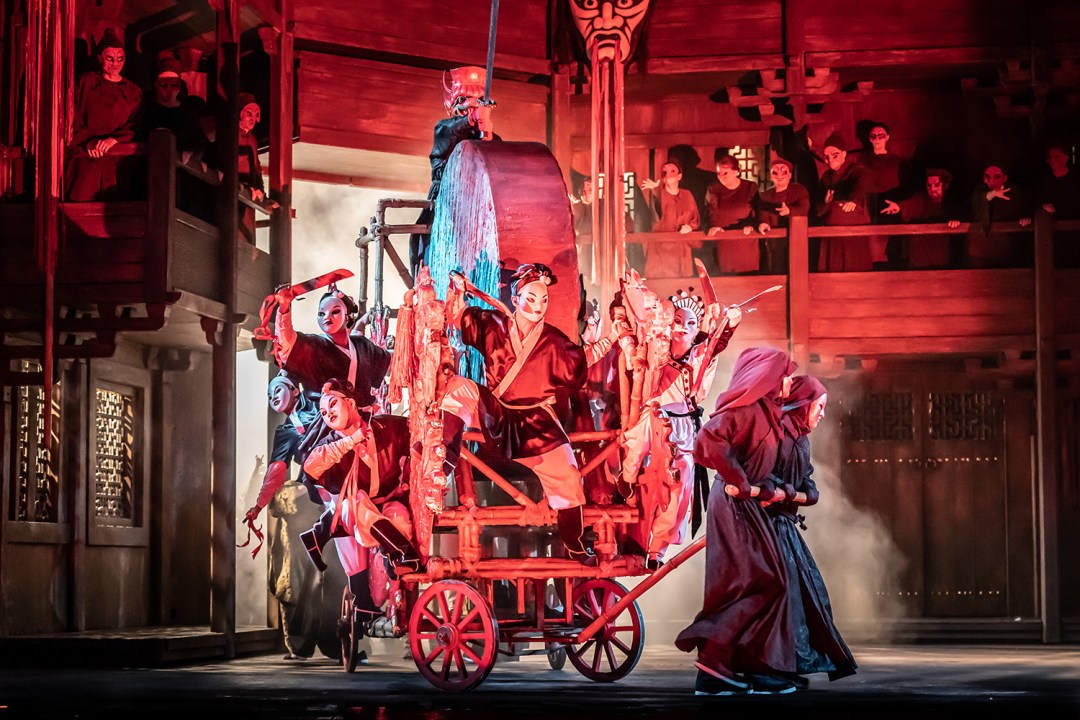Since its première in 1984, Andrei Serban’s production of Puccini’s Turandot has been revived 15 times at Covent Garden, not counting excursions to Wembley Arena. The current revival has been running (by all accounts, to capacity houses) since 10 March. The compelling reason for reviewing such a well-worn revival mid-run is that this performance featured the Royal Opera debut of the Nottingham-born Wagnerian soprano Catherine Foster – which by any reckoning was well overdue.
Foster is hugely esteemed in the German-speaking world. In itself, that doesn’t prove anything – I mean, they rate Franz Welser-Möst too. ‘Big in Germany’ is often brandished as a rebuke to an imagined Little British artistic parochialism, but I suspect the full story of Foster’s long absence from Covent Garden is more complex and more mundane than that; and probably known only to her agent and the Royal Opera’s casting department. The mandarins of Floral Street are inscrutable: they’ve never booked Anthony Negus or restaged The Ice Break either. Anyway, she’s here now, with a reputation and a track record – six consecutive Brünnhildes at Bayreuth – that should be catnip to any lover of late-Romantic opera.
Foster’s voice powers like a searchlight through massive choral and orchestral climaxes
And rightly. Foster draws the eye and holds it; a majestic and forbidding ice princess whose brief flash of curious, contemptuous eye contact with Calaf (Yonghoon Lee) in Act One establishes her stature before she’s sung a note. And when she does sing…well, with one exception (we’ll come to that in a moment) this is not a Turandot that’s big on vocal subtlety. Not a problem: Puccini’s characters are fairy-tale figures enacting archetypal emotions. So Foster blazes, but it’s a formidably controlled burn, rising towards the climax of ‘In questa reggia’ with a cool command that was matched by some of Antonio Pappano’s most sophisticated (and sensuous) conducting.








Comments
Join the debate for just £1 a month
Be part of the conversation with other Spectator readers by getting your first three months for £3.
UNLOCK ACCESS Just £1 a monthAlready a subscriber? Log in